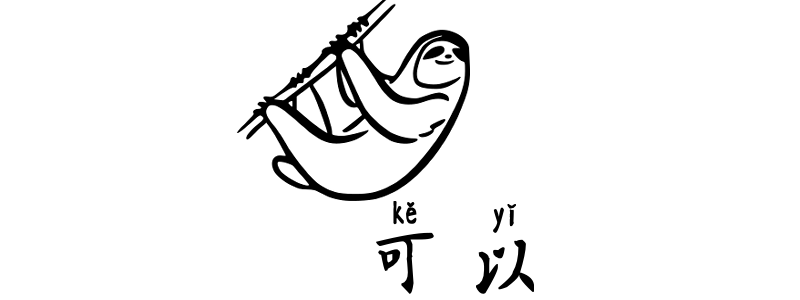可以 kěyǐ
可以 kěyǐ refers to permission or the ability to do something in a given situation. It is often used to make requests or ask for permission, and can also be used to describe what is allowed or permissible in a particular context.It is similar in meaning to the English phrases “may I” or “could you” in an interrogative sentence (question sentence).
我可以說英文嗎?我可以说英文吗?
May I speak English?
不可以拍照不可以拍照
No photos allowed.
請問可以借我手機嗎?请问可以借我手机吗?
May I borrow your cell phone?
Intermediate Level
THE OVERLAPPING PART
能 néng and 可以 kěyǐ
Both 能 néng and 可以 kěyǐ can be used to express possibility:
你今天能/可以來我家嗎?你今天能/可以来我家吗?
Can you come to my place today?
(Is it possible for you to come to my place today?)
你能/可以把鹽遞給我嗎?你能/可以把盐递给我吗?
Can you pass the salt to me?
你能/可以說慢一點嗎?你能/可以说慢一点吗?
Can you say it a little slower?
你能/可以閉嘴嗎?你能/可以闭嘴吗?
Could you shut up?
However, when you want to express impossibility in Chinese, 不能 bùnéng is the only choice.
我今天很忙,不能去你家我今天很忙,不能去你家
I am quite busy today, so I can’t go to your place.
(No possible)
我今天很忙,不可以去你家我今天很忙,不可以去你家 (X)
I am quite busy today, so I can’t go to your place.
(If you use 不可以, it implies someone not allowed you to go.)
我媽說太晚了,今天不可以去你家我妈说太晚了,今天不可以去你家
My mom said it’s too late, so I can’t go to your place today.
(You are not allowed to)
Both 能 néng and 可以 kěyǐ can be used to express restore ability:
經過手術後,我又能/可以走路了经过
After the surgery, I could walk again!


